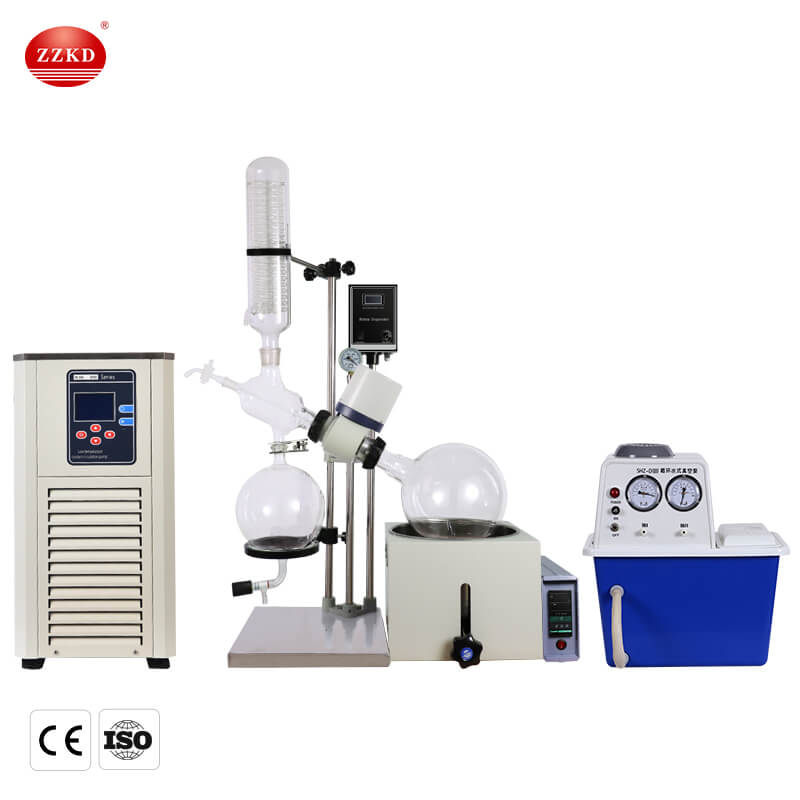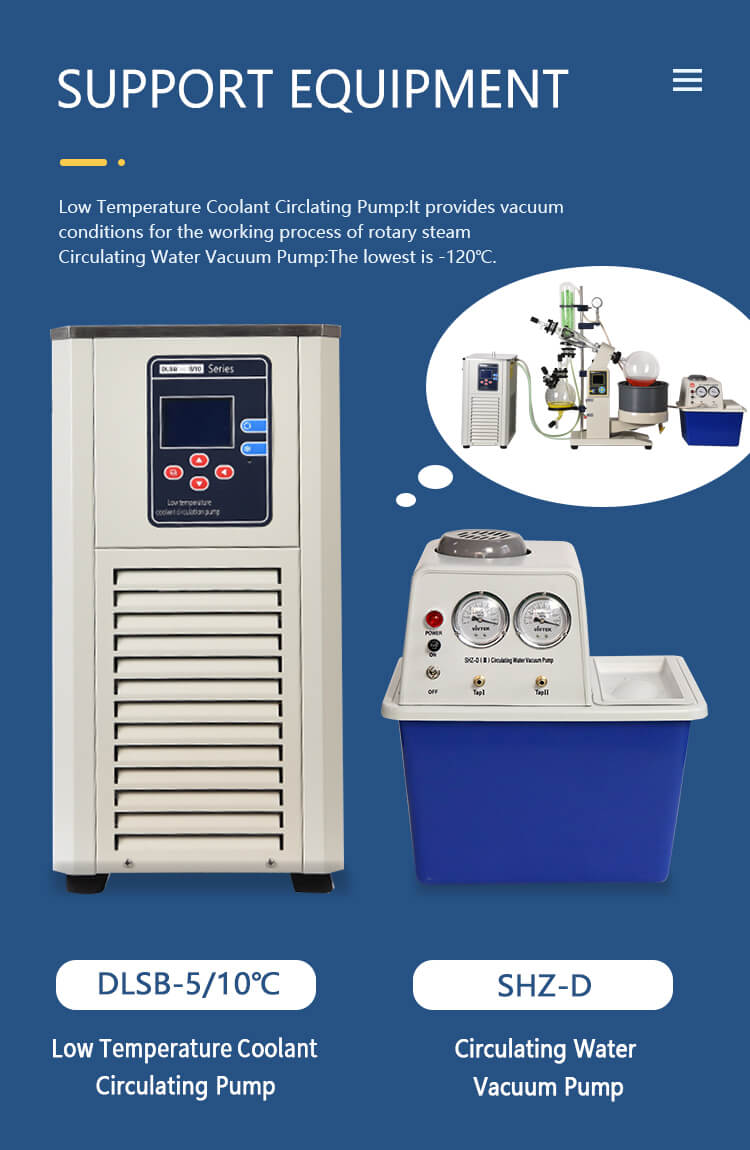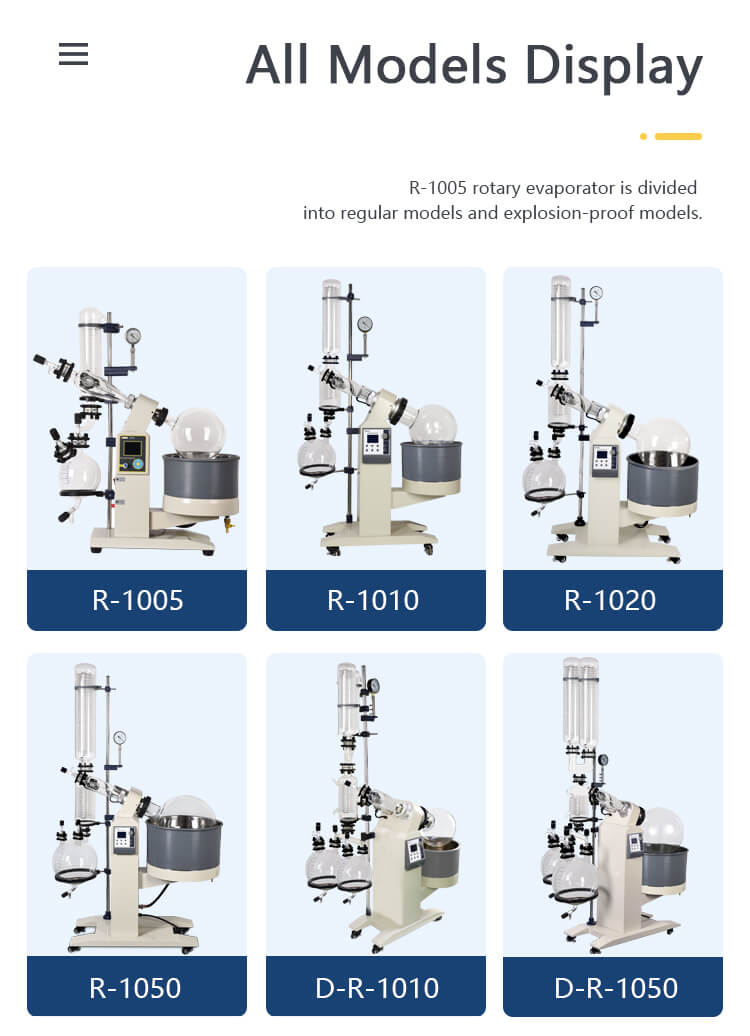Exploring the Vacuum Rotary Evaporator
A vacuum rotary evaporator is a sophisticated piece of laboratory equipment used for gentle and efficient solvent removal and concentration. This article delves into what a vacuum rotary ethanol evaporator is, how it operates, and the advantages it offers.
What is Vacuum Rotary Evaporator
A vacuum rotary evaporator is a specialized apparatus used in laboratories for the distillation and concentration of liquid samples under reduced pressure. It consists of a rotating flask, a heating bath, a condenser, and a vacuum pump, all integrated into a compact and efficient system.

How Does a Vacuum Rotary Evaporator Work
The operation of a vacuum rotary evaporator involves the following steps:
1. Loading of Sample: The liquid sample containing the solvent to be removed is placed into the rotating flask of the vacuum rotary evaporator. The flask is then attached to the rotary evaporator system.
2. Evaporation: The flask is rotated under vacuum conditions, which reduces the pressure inside and lowers the boiling point of the solvent. Heat is applied to the heating bath, causing the solvent to evaporate from the sample and form vapor.
3. Condensation: The vaporized solvent travels through a condenser, where it encounters a cool surface and condenses back into liquid form. The condensed solvent is collected in a separate flask for further analysis or disposal.
4. Vacuum Assistance: A vacuum pump maintains a reduced pressure environment within the rotary evaporator system, facilitating faster evaporation of the solvent and preventing bumping or splashing.
5. Collection: The concentrated sample, now free from the solvent, remains in the rotating flask. It can be collected and further processed or analyzed as needed.

Advantages of Vacuum Rotary Evaporators
1. Efficiency: Vacuum rotary evaporators offer efficient solvent removal and concentration, allowing for rapid processing of liquid samples.
2. Gentle Operation: The gentle evaporation process under vacuum conditions minimizes the risk of heat damage or degradation to sensitive samples.
3. Precise Control: Operators can control parameters such as temperature, rotation speed, and vacuum level to optimize the evaporation process for different samples and solvents.
4. Versatility: Vacuum rotary evaporators can handle a wide range of solvents and sample volumes, making them versatile tools in various laboratory applications.
5. Space-saving Design: Rotary evaporators are compact and require minimal bench space, making them suitable for use in crowded laboratory environments.

Is It Advantageous for Businesses to Invest in a Vacuum Rotary Evaporator?
Undoubtedly, investing in a vacuum rotary evaporator can offer significant benefits for businesses across various industries. However, the extent of these benefits may vary depending on the specific needs and objectives of the company. When contemplating such an investment, businesses often have diverse motivations. Some prioritize improving the efficiency of solvent evaporation processes, while others focus on maximizing yield and quality of the concentrated products. Similar to customers considering various factors when selecting products, such as price, quality, and reliability, businesses must also carefully evaluate different aspects to choose the most suitable vacuum rotary evaporator for their operations.

How Can Businesses Determine the Right Vacuum Rotary Evaporator for Their Needs?
Businesses can assess their requirements based on factors such as the types of solvents to be evaporated, the desired evaporation rate and temperature, and the scale of production. Vacuum rotary evaporators come in various sizes and configurations to accommodate different volumes and specifications. By evaluating their specific needs and considering factors such as evaporation efficiency, scalability, and ease of operation, businesses can select the appropriate rotary evaporator model. For example, research laboratories may opt for a smaller benchtop rotary evaporator, while large-scale manufacturing facilities may require a larger industrial rotary evaporator for mass production. These decisions should align with the company's production goals and operational requirements.


